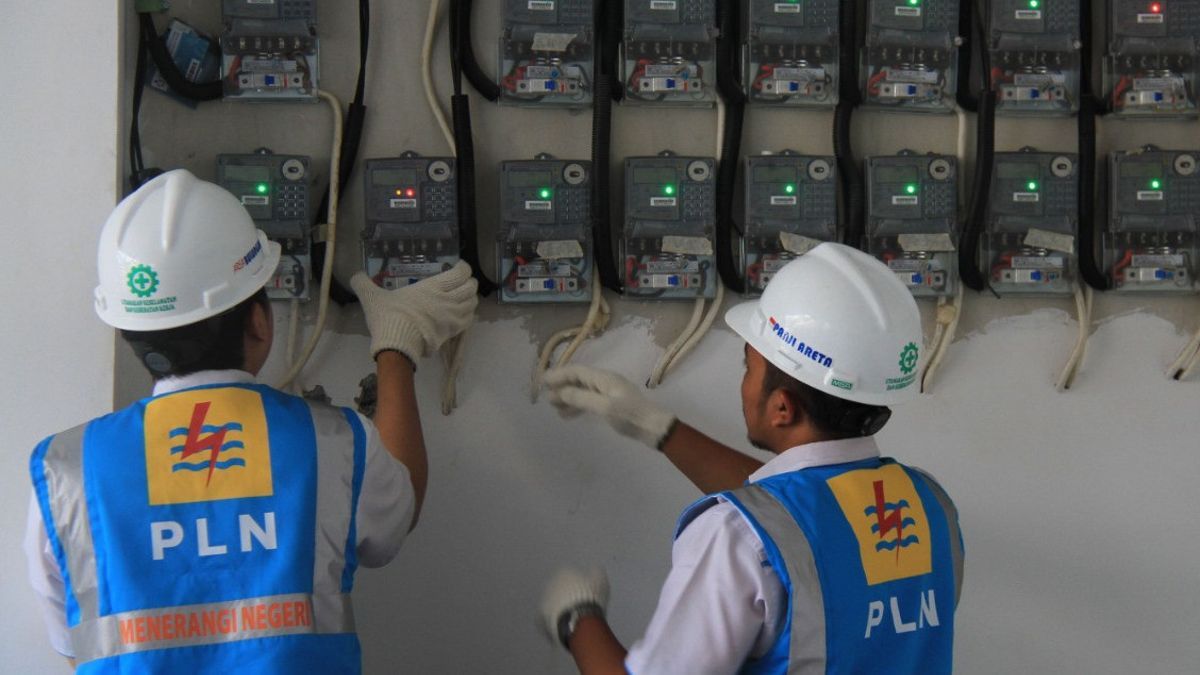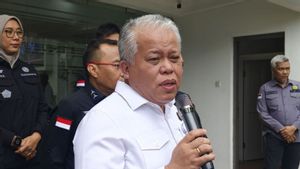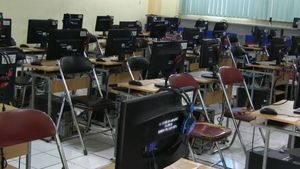JAKARTA - PT Perusahaan Listrik Negara (Persero) or PLN has brushed aside the issue of inflated customer electricity bills because the government policy provides free and discounted electricity for users of the underprivileged 450 VA and 900 VA groups. PLN also stated that there was no increase in electricity rates.
Director of Commerce and Customer Service Management of PT PLN, Bob Sahril, said that the increase in electricity bills was experienced by the public in April and May due to the increase in electricity consumption, due to the work from home policy.
According to Bob, the bill for electricity tariffs has also risen because of a carry-over, which should have been paid by users or consumers because PLN calculates based on average usage.
"So what is the reason for the increase in electricity tariff bills? It is due to the increase in usage. So why did the increase in usage seem high earlier than we have averaged for three months," he said, in a virtual discussion entitled 'Gonjang Ganjing Electric Bill', Thursday, June 11.
Furthermore, Bob said, this average calculation was applied because the government had imposed large-scale social restrictions (PSBB) in order to prevent the spread of COVID-19. This causes PLN officers to not be able to record meters directly.
Bob explained, for example, that the last usage was recorded at up to 100 kWh, meaning that the basis for billing the electricity tariff in one household is 100 kWh. In April, for example, usage reached 120 kWh. In May, the usage reached 140 kWh.
"Well, the excess is 20 (from April) plus 40 (from May), which is 60 kWh, meaning this has not been billed by PLN initially. Then in June the usage is 140 kWh. Now there is a carry-over of 60 kWh, this means the total is 200 kWh, and was billed that month, so it looks like it's up 200 percent, "he explained.
PLN, said Bob, understands the conditions faced by the community in the midst of the COVID-19 outbreak. Therefore, in order to relieve customers, PLN divides the carry-over bill into installments for 3 months from July to September.
"So from the 60 kWh carry-over earlier, 40 percent is charged to June's account, which is around 24 kWh. Then the remaining 46 kWh is divided into the next 3 months," he said.
Bob guarantees that the customer's kWh calculation is also carried out in a transparent manner. This is because the electricity meter is at the customer's residence, which means that it can be checked at any time.
Furthermore, said Bob, if customers feel objected to the increase in electricity bills, they can check the electricity meter and then match it with the data at PLN. Moreover, said Bob, the price of electricity per kWh has also been known to the public and has also been published on the official website of PLN.
"Write down the numbers or be photographed starting at 6 am until tomorrow morning. That is our usage one day and one night or 24 hours multiplied by 30, that's one month's usage. days can be seen, "he said.

Regarding cross subsidies, Bob said, it was impossible for PLN to do that. This is because this state-owned company also received assistance from the government to guarantee electricity discounts for 450 VA and 900 VA customers for the underprivileged group in the form of subsidies.
"It was clear earlier. How can cross subsidies? PLN gets assistance from the government in the form of subsidies. How else do you want cross-subsidies? Where does the money come from?"
According to Bob, like other companies choked by the impact of the COVID-19, PLN has also experienced it. This is because PLN's sales have decreased because offices, hotels, restaurants and shopping centers are not operating.
"PLN is also a company affected by COVID-19. Why? Our sales have dropped so much. This month alone, it has reached 10 percent, but our costs still mean the higher the cost of our production," he said.
Bob said that the installment of the electricity increase bill was also a solution offered by PLN. However, he said, PLN also cannot bear the increase in public consumption in the form of subsidies.
"So even if we have to bear it, it must be returned to be able to provide assistance in the form of subsidies or compensation to PLN, that's to the government," he explained.
The English, Chinese, Japanese, Arabic, and French versions are automatically generated by the AI. So there may still be inaccuracies in translating, please always see Indonesian as our main language. (system supported by DigitalSiber.id)








